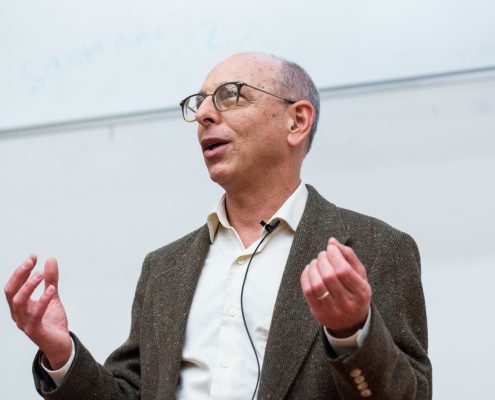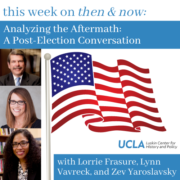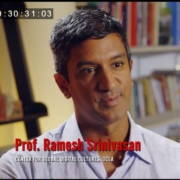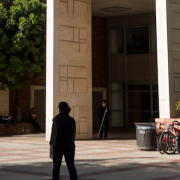Eavesdropping on Human Personality Variation: An Evolutionary Perspective
By Joseph H. Manson
Professor of Anthropology
Among our acquaintances and co-workers are the calm and the worried, the conscientious and the disorganized, the kind and the callous. Is there an overall pattern to the variation among these and other personality dimensions? And can this pattern be linked to people’s biological characteristics, such as how fast they grow up and how quickly they age? My research explores personality variation using “life history theory,” an evolutionary biological framework that describes and explains how people decide to dedicate their time and energy between the competing demands of physical growth, health maintenance, dating and parenting. A “slower” life history strategy (LHS) means investment in long-term health maintenance, monogamous relationships and a more nurturing, involved approach to parenting. In terms of personality traits, this slower LHS is usually associated with people who exhibit higher levels of conscientiousness, agreeableness and emotional stability.

Previous data collection in this area has relied almost exclusively on questionnaires. My current project will use direct behavioral observation to supplement and validate these “self-report measures,” in order to determine whether some of these traits often appear together in sets and clusters. I recruited 92 UCLA students to spend three days wearing an iPod running the Electronically Activated Recorder (EAR) app, which made a 30-second audio recording every 12.5 minutes between 6 a.m. and midnight. Participants knew the overall sampling pattern, but not the particular times when the app was recording. They also kept an hourly event diary noting their general activities. At the end of the three-day recording period, participants had the opportunity to listen privately to their audio clips and to delete any they wished (only about 1% were deleted). Participants also completed two self-report personality inventories and a questionnaire developed by other researchers, which purports to measure LHS.
One team of undergraduate research assistants coded the 21,000+ audio clips for over 40 activities and behaviors, including class attendance, arguing and watching TV or video. We also transcribed every intelligible word (almost 80,000 of them) of the participants’ speech. A second team of research assistants used each participant’s complete set of clips and event diary as the basis for describing their personality using an instrument called the California Adult Q-Sort (CAQ).
My analyses of these data confirm that people whose personality most closely resembles a slow LHS CAQ template (created by other researchers) are high in conscientiousness, agreeableness and emotional stability. However, in contrast to some earlier claims, the other two major dimensions of personality – extraversion and openness to experience – have more complicated relationships to LHS. For example: among the facets of extraversion, interpersonal warmth was associated with a slower LHS, whereas excitement-seeking was associated with a faster LHS. I also found LHS-related differences in word use: for example, people with a faster LHS use more “negative emotion words.” As a follow-up, my research assistants are now coding participants’ inferred emotional states directly from isolated audio clips. Other ongoing analyses are exploring the relationships of self-reported levels of the so-called “Dark Triad” traits (narcissism, Machiavellianism and psychopathy) to both LHS and everyday social interaction patterns.
Joseph H. Manson, a Professor in the Anthropology Department, is an evolutionary social scientist interested in primate behavior, human ethology and social interaction, and personality variation.









